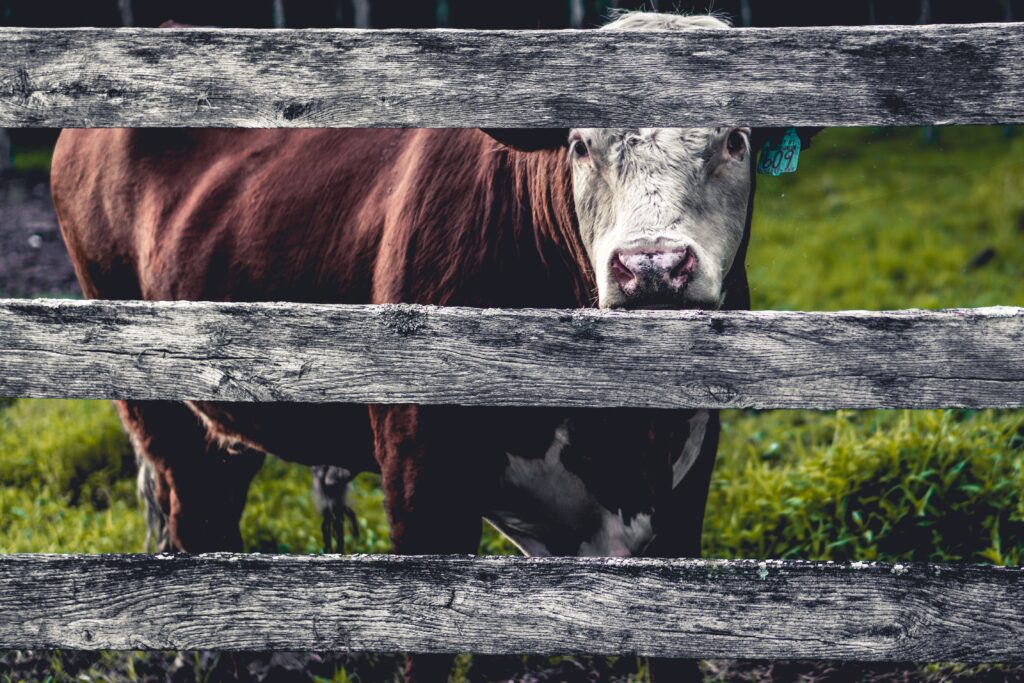
Why Do I Need Farm Insurance?
What is Farm Insurance?
Farm insurance is a type of insurance that specifically covers farms and other agricultural properties. The coverage may also include protection against loss or damage to:
- buildings, such as barns, silos, and sheds;
- equipment and tools used in farming, such as tractors, plows, and harvesters;
- crops, such as from fire, hail, or frost;
- livestock; such as from disease outbreaks, accidents and injuries, theft or loss, natural disasters, death due to exposure, predator attacks, poisoning or starvation.
- produce, such as grains, fruits, vegetables, tree crops, forage crops, herbs and spices, flowers and dairy.
- liability coverage for accidents that happen on the farm, such as if a visitor is injured;
- loss of income due to unforeseen events such as natural disasters.
Farmers and other agricultural property owners may need farm insurance to protect their assets and livelihoods. Even if a farmer is leasing the land, the farmer might still need insurance to protect his assets. Additionally, farmers who have employees or visitors on their property may also need farm insurance to protect against potential liability claims.
Overall, farm insurance can help farmers and other agricultural property owners protect their assets and livelihoods, and may provide financial protection against a variety of risks, unforeseen events and financial losses.
Why Buy Farm Insurance?
Some of the reasons why someone might choose to buy farm insurance include:
1. Protection of assets
Farm insurance can protect the farmer’s assets, such as buildings, equipment, and livestock, against loss or damage due to natural disasters, fire, theft, and other unforeseen events.
2. Liability coverage
Farm insurance may provide liability coverage in case a visitor or employee is injured on the property, and may help cover the costs of legal defense and any damages awarded.
3. Environmental liability
Farm insurance may provide liability coverage for the financial responsibility a farmer may face for environmental damages caused by their farming operations. This can include damage to soil, water, air, and wildlife caused by the release of pollutants, such as chemicals and waste products, into the environment.
4. Product liability insurance
If the elevator is storing products belonging to others, the owner or operator may need product liability insurance to cover damages caused by defects in the stored products.
5. Crop coverage
Many farm insurance policies include coverage for crop damage or loss due to natural disasters, such as hail, frost, or drought.
6. Loss of Income
In case of a natural disaster, the farmer may lose the income from the crops, the insurance can help to cover that loss.
7. Legal requirements
Some farmers may be required by law to have certain types of insurance coverage, such as liability coverage, to operate their farm or agricultural business.
8. Peace of mind
By having insurance, the farmer can have peace of mind knowing that their assets and livelihood are protected against potential financial losses.
Farm insurance policies can vary widely depending on the type of farm and the coverage options chosen. It’s important for farmers to carefully review and understand their insurance policies to ensure that they have the coverage they need.
Some additional things to consider when purchasing farm insurance
1. Types of coverage: Farm insurance policies can include a variety of coverage options, such as coverage for buildings, equipment, livestock, crops, and liability. It’s important to understand the different types of coverage available and choose the options that best meet the needs of your farm.
2. Exclusions: Farm insurance policies may have exclusions, or events or circumstances that are not covered by the policy. It’s important to understand any exclusions in your policy and make sure that you have adequate coverage for potential risks.
3. Cost: The cost of farm insurance can vary depending on the coverage options chosen and the size and type of farm. It’s important to consider the costs of different policies and coverage options to find an insurance policy that is both comprehensive and affordable.
4. Claims process: In the event of a loss, it’s important to understand how to file a claim with your insurance company and what documentation will be required. It’s also important to understand the time frame for filing claims and receiving payment.
5. Insurance provider: It’s important to research and choose a reputable insurance broker with experience in insuring farms and agricultural properties.
It’s also important for farmers to review their insurance policies regularly and update their coverage as needed to ensure that they have adequate protection for their farm and assets.
What are some Risk Management Tips?
There are several ways to help avoid making a claim on your farm insurance policy:
1. Regularly maintain equipment and buildings: Regularly maintaining and inspecting equipment and buildings can help prevent damage or breakdowns that could lead to a claim.
2. Implement safety measures: Implementing safety measures, such as posting warning signs and providing appropriate training for employees, can help prevent accidents and injuries that could lead to a liability claim.
3. Keep good records: Keeping accurate and up-to-date records of equipment, inventory, and other assets can help prove the value of lost or damaged items and speed up the claims process in the event of a loss.
4. Have a disaster plan: Having a disaster plan in place can help minimize damage and losses in case of natural disasters or other unforeseen events.
5. Review and update your insurance coverage: Reviewing your insurance coverage regularly and updating it as needed can help ensure that you have the coverage you need to protect your assets and livelihood.
6. Properly secure the property: Properly securing the property, such as by installing security cameras and fencing, can help deter theft and vandalism.
7. Hire a professional: Hire a professional to do an assessment of the farm, they can help identify any potential risks and provide recommendations on how to mitigate those risks.
8. Communicate with the insurance broker: Communicate with the insurance broker, they can provide guidance on best practices for preventing claims and can also provide information on any safety or risk management programs they may offer.
It’s important to remember that even with the best efforts, some events are out of human control and an insurance policy can help you to be prepared for such situations.
Why do you recommend a $2 million Liability Limit?
A liability limit of $2 million is a common limit for farm insurance policies in Canada. This high limit is necessary because the potential for financial loss due to a liability claim can be significant.
Farmers and other agricultural property owners may be held liable for accidents or injuries that occur on their property, such as if a visitor is injured by equipment or livestock, or if a pesticide or chemical spill harms the health of a neighboring property. These types of claims can result in large settlements or judgments, and a $2 million liability limit is intended to provide adequate protection against such a large financial loss.
Additionally, a $2 million liability limit can also provide protection against any potential legal expenses that may arise from a claim. It’s important to note that even a small accident or incident can lead to a costly legal process.
It’s also important to note that the general liability limit of $2 million is a standard in the industry, and some insurance providers may require a minimum limit of $2 million for farm insurance policies. Even if the farm owner does not think that the property or activities on it poses a high risk, it is always better to be safe than sorry.
Overall, a $2 million liability limit is intended to provide adequate protection against the potential financial loss resulting from a liability claim, and to help the farmer peace of mind.
Why do you recommend Cyber Insurance?
Whether or not a farmer should purchase cyber insurance depends on the specific needs of their farm and the types of risks they face. Cyber insurance is a type of insurance that specifically covers losses related to cyber attacks, such as data breaches, hacking, and computer system failures.
Farmers increasingly use technology in their operations, from precision agriculture, and precision livestock farming, to the use of software for accounting, payroll and other business functions. As a result, farmers may be vulnerable to cyber attacks, and that could cause financial loss or damage to the reputation. Cyber insurance can provide coverage for the costs associated with responding to a cyber attack, such as hiring a forensic investigator, notifying affected parties, and providing credit monitoring services.
Cyber insurance can also cover losses related to business interruption, such as lost income or extra expenses incurred during the recovery process. In addition, it may also cover the cost of public relations and crisis management to mitigate reputational damage.
In conclusion, while cyber insurance is not necessary for all farmers, it can be a valuable consideration for farmers that rely heavily on technology and store sensitive information, such as personal data of employees or customers, financial data, or intellectual property. It’s always a good idea for farmers to assess their own cyber risk and to consult with an insurance broker to determine if cyber insurance is a good fit for their farm operation.
What can I do to decrease my insurance premium?
There are several ways farmers can save money on their insurance premiums:
1. Shop around: Compare rates and coverage options from different insurance providers to find the best policy for your needs at the most affordable price.
2. Increase your deductible: Increasing your deductible (the amount you pay out of pocket before insurance coverage kicks in) can lower your premium.
3. Bundle policies: Bundling multiple policies, such as farm insurance and auto insurance, with the same insurance company can result in discounts.
4. Implement safety measures: Implementing safety measures such as security cameras, alarms and other safety precautions can lower your premium.
5. Maintain a good claims history: Having a good claims history can make you eligible for discounts.
6. Take advantage of discounts: Ask your insurance broker if they offer any discounts, such as for having a certain type of security system or for being a member of a professional organization.
7. Review your coverage: Review your coverage regularly and make sure that you have the coverage you need, but not more than you need, this can help to lower your premium.
8. Pay your premium in full: Many insurance providers offer discounts for paying the premium in full, rather than making monthly payments.
Additionally, it’s always a good idea to consult with an insurance broker, who can help you understand your options and make informed decisions about your coverage and premium. If you would like to get a quote on your farm insurance call us or click here.
One thought on Why Do I Need Farm Insurance?
Leave a Reply
You Might Want to Read
April 20, 2025
Wrap-Up Liability Insurance
April 20, 2025
Careless Driving, Ontario
April 20, 2025
Distracted driving Ontario





Luke Smith
I like that you talked about how many farm insurance policies include coverage for crop damage or loss due to natural disasters, such as hail, frost, or drought. I was reading a book about how to manage a farm and I saw one part that talked about the perks of insurance. I didn’t know that even farms could have insurance, but it does seem pretty useful.